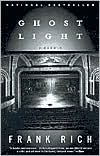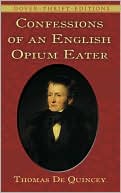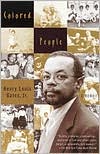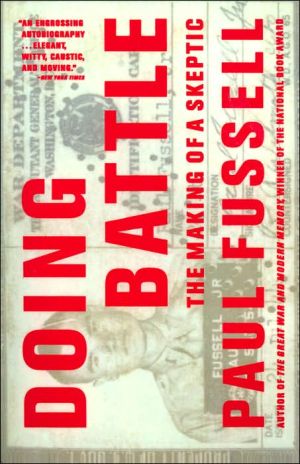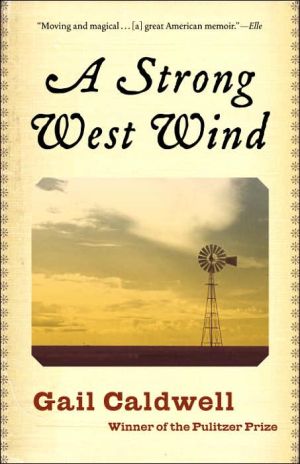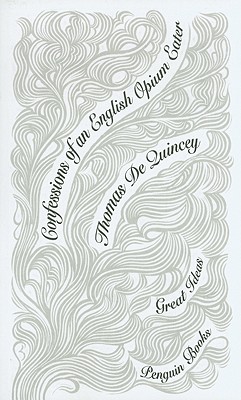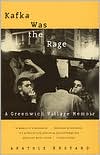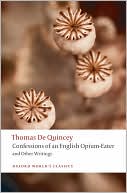Ghost Light
There is a superstition that if an emptied theater is ever left completely dark, a ghost will take up residence. To prevent this, a single "ghost light" is left burning at center stage after the audience and all of the actors and musicians have gone home. Frank Rich's eloquent and moving boyhood memoir reveals how theater itself became a ghost light and a beacon of security for a child finding his way in a tumultuous world.\ Rich grew up in the small-townish Washington, D.C., of the 1950s and...
Search in google:
There is a superstition that if an emptied theater is ever left completely dark, a ghost will take up residence. To prevent this, a single "ghost light" is left burning at center stage after the audience and all of the actors and musicians have gone home. Doris Kearns Goodwin This is an absolutely marvelous memoir, the best I have read in recent years. It recounts, passionately and often painfully, the story of an endearing young child from a broken home who finds refuge and finally redemption in the world of theater. It is a thoroughly absorbing tale, told beautifully and without a hint of self-pity. It is everything a literary memoir ought to be.
To be an American kid in the fifties was to live in a sparkling, hopeful world where ignorance really was bliss. Parents spoke in euphemistic private codes rather than say anything that might mar the tableaux of contentment they tirelessly constructed for wide young eyes.\ We lived in Somerset, where the streets were called Dorset and Warwick and Uppingham and Trent—their very names a farcical affront to reality. The English did not dwell in our bonny Somerset, and neither did their local heirs, the Protestants, who had their own, restricted neighborhoods barely miles away. Somerset, a subdivision built just across the District line in Maryland but not far enough from a city turning black to be among the most desirable of suburbs, was mainly the province of Jews. The houses were not baronial estates but mostly small and new, inhabited by men who had come back from the war to build careers and families and to tend continually to their front lawns and backyards, also small but, as a point of honor, impeccably green. Inside the houses was a riot of wallpaper, some of it depicting scenes more in keeping with the neighborhood's cosmopolitan aspirations. April in Paris? The Weinsteins' dining room was a fanciful rendering of a Parisian boulevard sketched in broad lines and pastels, the kiosks and flower stalls circled by a profusion of dancing pink and black poodles. Even this scene had a recognizable air of American domesticity; it was the cartoon Paree we'd glimpsed in Looney Tunes.\ Our universe was as buoyant and tightly sealed as a balloon. After we walked down the hill from the redbrick Somerset Elementary School each weekday at three, we played tag and ball in the street without fear that a stranger or stray car might intrude, secure in the knowledge that our mothers were only one loud shout away and that the worst that could happen to us would be to fall off a bike after the training wheels were removed. The only temptation to danger was provided by a forest that hadn't yet been cleared for new houses; it was a handy laboratory for our earliest experiments with matches, one of which led to the arrival of a fire engine and a rare outbreak of mass parental recrimination in a neighborhood whose kids were not the kind to get into trouble.\ The best hope for a daring adventure worthy of our Bobbsey Twins books was the occasional foray into what we took to be a haunted house—any house that had just been built or had just changed hands, and whose new tenants had yet to move in. It was easy to identify these haunted houses: The realtors marked them with red-and-white metal signs planted in the center of their lawns. And it was easy to enter them and commandeer their unfurnished rooms for games of hide-and-seek, all the creepier for the absence of lights and for the reverberant effect on our screams of the bare floors and walls, especially in that fast-dimming twilight just before dinner. We told ourselves there must be ghosts in residence in these houses, that spirits haunted the shadows of the vacant dens and bedrooms and rec rooms with their acrid fragrance of fresh paint.\ When darkness fell, we retreated reluctantly from the horseplay in our front yards, each according to his assigned bedtime, until the whole neighborhood was tucked in for the night. But muffled behind the venetian blinds of each house there might still be a flicker of light, a visual echo of the fireflies we collected in Mason jars in our backyards each summer, now emanating from the magical hearth of television.\ Sitting before the TV sets in our living rooms—they hadn't invaded bedrooms yet—we watched our neighborhood in a faithful black-and-white replication: the same driveways jutting like tongues from garage to street, the same lawns awaiting the next weekend mowing, the same father with his genial grin and firm but calming voice, the same perpetually amused, slightly distracted, occasionally flustered, but resolutely uncomplaining mother poking around in the kitchen preparing the next meal, the same mischievous but fundamentally good brothers and sisters committing only the most innocuous infractions of their parents' painstakingly codified rules. Sometimes it was hard to figure out where Somerset ended and the TV neighborhoods, with their similarly pastoral place-names, began. If there was a man in the moon—the opening credits of one of our favorite TV comedies, The Honeymooners, promised us one—what would he make of these look-alike families in their look-alike homes staring each night at other look-alike families in their own look-alike homes on small cathode-ray tubes burning through the inky shadows of our living rooms?\ Contentment and prosperity smiled back at us from everywhere we looked then, as shiny as our reflections in the voluptuous curves of our parents' bright new cars.\ Not unlike Lucy and Desi, Mom and Dad had moved from their small newlyweds' apartment in the city to their first house right after I was born. They had landed in Somerset from culturally conflicting ports of origin. Mom, a grandchild of Russian immigrant families, had been born in Brooklyn—in Manhattan Beach, at the end of Coney Island, in a house just a block from the shore where crates of bootleg liquor were dropped by boat to make their way to New York during Prohibition. But the Depression ended this beach idyll when Mom was seven, sending her father, Nat, and mother, Lil, into the provincial swamp of Washington, D.C. There Nat took what remained of his savings and bought his way into a paper-goods wholesaler of Dixie cups and big brown envelopes and paper clips and glistening mass-produced miracles like Scotch tape. In Washington, the Aaronsons had to settle for raising Mom and her sister in an apartment—on Connecticut Avenue, on the city side of the District line.\ By contrast, Dad and his parents, Herbert and Rose, were true Washingtonians. Dad was fonder of telling stories about how his ancestors had fought only dozens of miles away in the Civil War than he was of recounting his own adventures as an Air Force commander in the China-Burma-India theater in World War II. The Riches were German Jews who would have found Brooklyn as foreign as Madagascar. It would have been hard to guess that the Riches were Jewish, since they spoke no Hebrew, ate pork chops, and, in further defiance of their nominal religion's practice, named their firstborn sons after their living fathers: I was Frank, Jr., as Dad's older brother was Herbert, Jr. When Grandma Rose, at our Wednesday-night family dinners at her and Grandpa Herbert's apartment, wanted to identify anyone as Jewish, she lowered her usual booming decibel level—she had been near deaf since Dad was a boy—and spoke cryptically, sotto voce, of "one of us" or "a member of our tribe." I always wondered from whom she was keeping our Jewishness a secret. The only outsider within earshot was Irene, the black maid who had worked for Grandma Rose since before the Depression and who seemed to be more cognizant of Jewish holidays and rituals than her employers were. As my Rich grandparents refused to acknowledge their Jewishness, so they never spoke of anti-Semites or pogroms or Nazis. Each spring, Grandpa would drive his Packard to tour the splendid front lawns in the suburban enclave of Kenwood, where Grandma, having only potted plants and no yard to tend, would cluck over the newly blooming azaleas and cherry blossoms she longed for, never acknowledging the neighborhood's notorious antipathy to Jewish residents, no matter how lofty their provenance.\ Dad grew up in a more affluent Washington than Mom's, in a house off Sixteenth Street, the prosperous Jewish district near downtown. His childhood home was only a short trolley ride from the store his great-grandfather had started near Ford's Theatre four years after Lincoln was shot. B. Rich & Sons had been the store's original name, but a bitter fight over which siblings would run it had led to the permanent banishment of some of those Riches from both the business and the family just before I was born. Grandpa, Mom later confided in me, had gone so far as to curse his own mother, his antagonist in the Rich family civil war, even as she was being lowered into her grave. Now the store was known officially as Rich's Shoes—simply Rich's to its customers. Grandpa Herbert had vanquished all dissidents—including Herbert, Jr., who had exiled himself to New York—and now ruled by absolute fiat, with my father, the only son left in the fold, as his unambiguously subordinate heir.\ When Dad came back from the war he had asserted his independence by taking a job three blocks away at Hecht's, a department store with a competing shoe department. Though the Korean Conflict put him briefly back in uniform, with an office job at the Pentagon, he had by then rejoined his father at the old store on F Street. The only time I ever heard Dad angry was when he was on the phone with Grandpa at night, arguing about the marked-down price of one shoe or another in a sale. For Polly and me, the store was a treasure chest: Rich's gave its youngest customers comic books and crayons in brightly colored cardboard tubes that looked like rocket ships, and Dad brought home as many as he could carry.
\ From Barnes & NobleFrank Rich, who served from 1980 to 1993 as the chief drama critic for The New York Times, fell in love with the theater as a child in the 1950s and '60s. The great musicals of that era, in particular, were his refuge from the typical trials of childhood and the heartbreak of watching his parents' marriage unravel. In Ghost Light, Rich offers an evocative look back at a time when the theater offered a joyous alternative to life's often bleak realities.\ \ \ \ \ Doris Kearns GoodwinThis is an absolutely marvelous memoir, the best I have read in recent years. It recounts, passionately and often painfully, the story of an endearing young child from a broken home who finds refuge and finally redemption in the world of theater. It is a thoroughly absorbing tale, told beautifully and without a hint of self-pity. It is everything a literary memoir ought to be.\ \ \ John Gregory DunneGhost Light is not so much a memoir as an exorcism. Frank Rich revisits those defoliated battlegrounds we call family and childhood, picks his way through the still live booby traps of memory, and returns if not at peace then at least with the shards of understanding.\ \ \ \ \ Wendy WassersteinFrank Rich's Ghost Light is a stunning book. He manages to weave memories of childhood and theater into a complicated and deeply touching pattern. For anyone who remembers or still believes that their true lives begin when the curtain goes up, Ghost Light will illuminate their passion. This is a beautifully written, honest book. As in the best of theater, any reader will laugh, cry, and be very moved by the end.\ \ \ \ \ James EllroyGhost Light is a superb memoir--rich in anecdote, dense in theme. It's a spellbinding coming-of-age tale, a meditation on art and youth in the '60s, a horror story of urban family life. Deft, raucous, occasionally terrifying--you applaud Frank Rich for his journey and his brilliant skill in delineating it.\ \ \ \ \ Publishers WeeklyTwo intertwined themes propel this evocative memoir of growing up in the 1950s and '60s by a former drama critic and current op-ed columnist for the New York Times. The first is the pain and confusion of being the child of divorced parents at a time when most families remained intact. The second is how the allure of theater softened that pain and gave the author a new way of understanding the world. Rich's world changed radically when his middle-class Jewish parents divorced in 1956, and the comfortable everyday routine of The Mickey Mouse Club and family dinners disappeared. It was during this time that Rich's parents introduced him to Broadway musical comedies--Pajama Game, Damn Yankees, Most Happy Fella--which became both a passion and a private imaginative world for him. Rich's prose can revel in nostalgia, as when he conjures up his anticipation of going to his first Broadway show or meeting Jack Benny in a restaurant. It can also be effectively frightening, as when he recounts physical and emotional abuse at the hands of his new stepfather. Rich offers some wonderful insights, for example when he realizes, upon seeing and reading Who's Afraid of Virginia Woolf, that the American theater is maturing along with him; or when he writes about how his older gay male mentor (who eventually died of AIDS) prepared him to face problems in his personal life as well as to embrace his life in the theater. In the end, Rich's story resonates with the pain and triumph of everyday life. (Oct.) Copyright 2000 Cahners Business Information.\ \ \ \ \ Library JournalMany know Rich through his fine theater reviews that appeared in The New York Times from 1980 to 1994, but his love for the stage developed much earlier. From the time his parents brought home cast recordings of South Pacific and The Pajama Game to the day he attended his first show, Damn Yankees, at Washington's National Theatre, Rich increasingly hungered for bigger doses of this magical world. After his parents' divorce, the theater offered solace. It was a common interest he shared with his mother and the only real bridge between himself and an abusive stepfather. The young Rich reconstructed theater sets in miniature, collected discarded Playbills from garbage baskets, dreamed of the stories and the music, reveled in New York theater trips, and studiously devoured Variety from an early age. Set in the Fifties and Sixties, this engrossing memoir is threefold: the story of a boy who found refuge in the theater during family turmoil, a mini-history of contemporary productions, and an informal observation of events and culture of the day. Readers will be enchanted with the young Rich. The tale of his early life, with its personal distresses and theatrical passions, is astonishing, and it is well told--as haunting as the specter that the "ghost light" left on at the theater all night is meant to dispel. For circulating libraries, particularly those with large theater collections. [Previewed in Prepub Alert, LJ 6/1/00.]--Carol J. Binkowski, Bloomfield, NJ Copyright 2000 Cahners Business Information.\\\ \ \ \ \ James E. ShapiroEngaging . . . Revealing and unexpected . . . Like so many of the plays that shaped his imagination, the memoir follows an elegant three-act structure . . . \ —New York Times Book Review\ \ \ \ \ Rhonda JohnsonEven readers bored with tales of boomer childhood misery will be moved by this story of how an unhappy kid turned his passion for plays into a highly influential career.\ —Entertainment Weekly\ \ \ \ \ Kirkus ReviewsFormer New York Times theater critic Rich delivers a painfully earnest, uncomfortably slow, and surprisingly edgeless boyhood memoir-all about how he escaped from his child-of-divorce angst by falling obsessively in love with Broadway musicals.\ \
